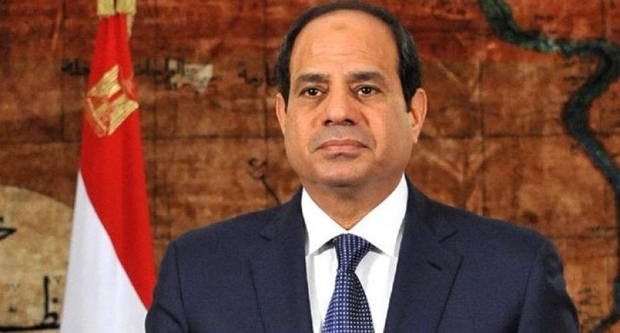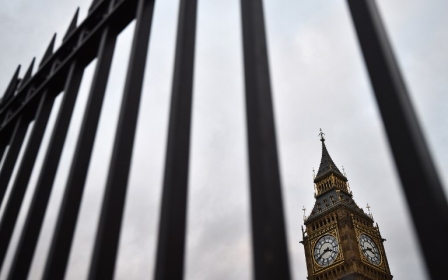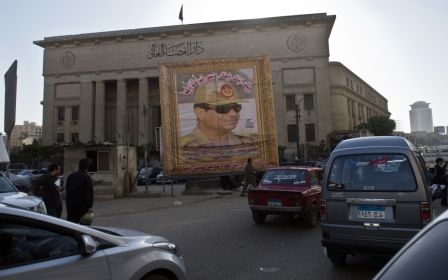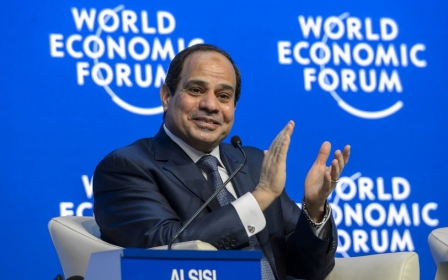Sisi fires Egypt's top auditor known for anti-corruption drives

Egyptian President Abdel Fattah al-Sisi on Monday dismissed the country’s top auditor, a known critic of the government who has accused it of corruption.
Hesham Geneina, who headed the Central Auditing Organisation, told Egyptian media late last year that government corruption had cost the country about $76bn in just four years - roughly about 5 percent of the country’s GDP every year was lost to corruption. However, senior officials and pro-government media were quick to dismiss Geneina’s claims.
Sisi removed Geneina by presidential decree. He did not specify why Geneina had fired him but the move came hours after the State Security Prosecution ruled that Geneina’s findings were inaccurate.
The move came the same day that a high court in Egypt forcibly retired 32 judges it accuses of "intervening in politics" for their alleged support of the Muslim Brotherhood.
A report on the New Arab website said an arrest warrant had also be issued for Geneina, although MEE could not independently confirm the report.
Corruption has long been a key issue in Egypt and was one of the reasons behind the 2011 revolution that toppled longtime ruler Hosni Mubarak.
The Muslim Brotherhood’s Mohamed Morsi won presidential elections in 2012 but was unable to turn the country’s economic situation around and was deposed a year later by the then army chief Sisi, who has and since become president.
Egypt's pro-government media accused Geneina of having Brotherhood links due to his appointment by Morsi. Geneina has denied this.
He told Mada Masr last July that the accusations were being placed by corrupt businessmen who were concerned that his work would interrupt their “networks”.
Last year, a law which gave the president the power to remove heads of supervisory bodies for security reasons was passed with some media speculating at the time that it was aimed at Geneina.
Since coming to power, Sisi has made tackling corruption a key issue, but his rule has been rocked by ongoing controversies.
Last September, Egypt's agriculture minister was arrested in connection with a corruption probe alleging that ministers took bribes to help businessmen buy up state lands.
Days after his resignation, the whole cabinet appears to have been forced to resign. While no official reason was given and no direct link to corruption made, officials at the time said Sisi was keen to get "pump new blood" into politics after the scandal.
Since Morsi was removed, authorities have staged widespread crackdowns on opponents, arresting tens of thousands of people. While the Muslim Brotherhood, now deemed a terrorist group, has been singled out, secular and leftist activists have also been targeted.
New MEE newsletter: Jerusalem Dispatch
Sign up to get the latest insights and analysis on Israel-Palestine, alongside Turkey Unpacked and other MEE newsletters
Middle East Eye delivers independent and unrivalled coverage and analysis of the Middle East, North Africa and beyond. To learn more about republishing this content and the associated fees, please fill out this form. More about MEE can be found here.




